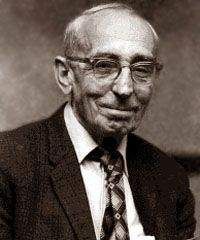Пользователь - o 3b3e7475144cf77c

Обзор книги Пользователь - o 3b3e7475144cf77c
DRAGON'S
TEETH
Upton Sinclair
The Viking Press New York
1942
Contents
Book One: The Morning Opes Her Golden Gates
I. THE OLD BEGINNING
3
II. THOSE FRIENDS THOU HAST 22
III. AND THEIR ADOPTION TRIED 42
IV CAN CALL SPIRITS
64
V. FROM THE VASTY DEEP
82
Book Two: A Cloud That's Dragonish
VI. DEUTSCHLAND ERWACHE!
103
VII. I HAVE SEEN TEMPESTS 126
VIII. TO GIVE AND TO SHARE 147
IX. LAND WHERE MY FATHERS DIED
167
X. CONSCIENCE DOTH MAKE COWARDS
188
Book Three: Blow, Winds, and Crack Your Cheeks
XI. 'TIS WOMAN'S WHOLE EXISTENCE
211
XII. PLEASURE AT THE HELM 234
XIII. EVEN TO THE EDGE OF DOOM 255
XIV. THE STORMY WINDS DO BLOW
276
XV. DIE STRASSE FREI299
Book Four: As on a Darkling Plain
XVI.
ROOT OF ALL EVIL
323
XVII.
WILL YOU WALK INTO MY PARLOR? 346
XVIII.
I AM A JEW
369
XIX.
NO PEACE IN ZION
392
XX.
SUFFERANCE IS THE BADGE 415
Book Five: This Is the Way the World Ends
XXI. IN FRIENDSHIP'S NAME
441
XXII. STILL GET MONEY, BOY!
463
XXIII. ALL THE KINGDOMS OF THE WORLD
483
XXIV. DIE JUDEN SIND SCHULD
503
Book Six: Blood Hath Been Shed
XXV.
GRASPING AT AIR
531
XXVI.
OUT OF THIS NETTLE, DANGER
553
XXVII. A DEED OF DREADFUL NOTE 575
XXVIII. BLOODY INSTRUCTIONS
594
XXIX.
TOO DEEP FOR TEARS 6 l l
BOOK ONE
The Morning Opens Her Golden Gates
1
The Old Beginning
I
LANNY BUDD was the only occupant of a small-sized reception-room. He was seated in a well-padded armchair, and had every reason to be comfortable, but did not appear so. He fidgeted a good deal, and found occasions for looking at his watch; then he would examine his fingernails, which needed no attention; he would look for specks of lint on his tropical worsted trousers, from which he had removed the last speck some time ago. He would look out of the window, which gave on one of the fashionable avenues of the city of Cannes; but he had already become familiar with the view, and it did not change. He had a popular novel on his knee, and every now and then would find that he could not interest himself in the conversation of a set of smart society people.
Now and then one of several white-clad nurses would pass through the room. Lanny had
asked them so many questions that he was ashamed to speak again. He knew that all husbands
behave irrationally at this time; he had seen a group of them in a stage play, slightly risqué but
harmless. They all fidgeted and consulted their watches; they all got up and walked about
needlessly; they all bored the nurses with futile questions. The nurses had stereotyped replies,
which, except for the language, were the same all over the world. "Oui, oui, monsieur. . . . Tout
va bien. . . . Il faut laisser faire. . . . Ilfaut du temps. . . . C’est la nature."
Many times Lanny had heard that last statement in the Midi; it was a formula which excused
many things. He had heard it more than once that afternoon, but it failed to satisfy him. He
was in rebellion against nature and her ways. He hadn't had much suffering in his own life,
and didn't want other people to suffer; he thought that if he had been consulted he could have
suggested many improvements in the ways of this fantastic universe. The business of having
people grow old and pass off the scene, and new ones having to be supplied! He knew persons
who had carefully trained and perfected themselves; they were beautiful to look at, or
possessed knowledge and skills, yet they had to die before long — and, knowing that fact, must
provide a new lot to take their places.
Lanny Budd belonged to the leisure classes. You could tell it by a single glance at his smiling
unlined face, his tanned skin with signs of well-nourished blood in it, his precise little mustache,
his brown hair neatly trimmed and brushed, his suit properly tailored and freshly pressed, his
shirt and tie, shoes and socks, harmonizing in color and of costly materials. It had been some time
since he had seen any bloodshed or experienced personal discomfort. His life had been arranged
to that end, and the same was true of his wife. But now this damnable messy business, this
long-drawn-out strain and suffering—good God, what were doctors and scientists for if they
couldn't devise something to take the place of this! It was like a volcanic eruption in a well-ordered
and peaceful community; not much better because you could foresee the event, going in advance
to an immaculate hospice de la maternité and engaging a room at so much per week, an
accoucheur at so much for the job.
A surgeon! A fellow with a lot of shiny steel instruments, prepared to assist nature in opening
a woman up and getting a live and kicking infant out of her! It had seemed incredible to Lanny
the first time he had heard about it, a youngster playing with the fisherboys of this Mediterranean
coast, helping them pull strange creatures out of the sea and hearing them talk about the "facts
of life." It seemed exactly as incredible to him at this moment, when he knew that it was going
on in a room not far away, the victim his beautiful young playmate whom he had come to love
so deeply. His too vivid imagination was occupied with the bloody details, and he would clench
his hands until the knuckles were white. His protest against nature mounted to a clamor. He
thought: "Any way but this! Anything that's decent and sensible!" He addressed his ancient
mother, asking why she hadn't stuck to the method of the egg, which seemed to work so well with
birds and snakes and lizards and fishes? But these so-called "warm-blooded creatures," that had
so much blood and spilled it so easily!
II
Lanny knew that Irma didn't share these feelings. Irma was a "sensible woman," not troubled
with excess of imagination. She had said many times: "Don't worry. I'll be all right. It doesn't
last forever." Everybody agreed that this young Juno was made for motherhood; she had ridden
horseback, swum, played tennis, and had a vigorous body. She hadn't turned pale when she
crossed the threshold of this hospital, or even when she heard the cries of another woman.
Things always went all right with Irma Barnes, and she had told Lanny to go home and play
the piano and forget her; but here he sat, and thought about the details which he had read in an
encyclopedia article entitled "Obstetrics." From boyhood he had had the habit of looking up
things in that dependable work; but, damn it all, the article gave an undue proportion of space
to "breech presentations" and other variations from the normal, and Lanny might just as well
have been in the delivery-room. He would have liked to go there, but that would have been
considered an extreme variation from the normal in this land of rigid conventions.
So he sat in the little reception-room, and now and then the perspiration would start on his
forehead, even though it was a cool spring day on the Riviera. He was glad that he had the
room to himself; at times, when somebody came through, he would lower his eyes to his book
and pretend to be absorbed. But if it was one of the nurses, he couldn't keep from stealing a
glance, hoping that it was the nurse and the moment. The woman would smile; the conventions
permitted her to smile at a handsome young gentleman, but did not permit her to go into
obstetrical details. "Tout va bien, monsieur. Soyez tranquille." In such places the wheel of life
revolves on schedule; those who tend the machinery acquire a professional attitude, their phrases
become standardized, and you have mass production of politeness as well as of babies.
III
Lanny Budd was summoned to the telephone. It was Pietro Corsatti, Italian-born American
who represented a New York newspaper in Rome and was having a vacation on the Riviera. He
had once done Lanny a favor, and now had been promised one in return. "Pete" was to have the
news the moment it happened; but it refused to happen, and maybe wasn't going to happen. "I
know how you feel," said the correspondent, sympathetically. "I've been through it."
"It's been four hours!" exclaimed the outraged young husband.
"It may be four more, and it may be twenty-four. Don't take it too hard. It's happened a lot of
times." The well-known cynicism of the journalist.
Lanny returned to his seat, thinking about an Italian-American with a strong Brooklyn accent
who had pushed his way to an important newspaper position, and had so many funny stories
to tell about the regime fascista and its leaders, whom, oddly enough, he called "wops." One of
his best stories was about how he had become the guide, philosopher, and friend of a New York
"glamour girl" who had got herself engaged to a fascinating aristocrat in Rome and had then made
the discovery that he was living with the ballerina of the opera and had no idea of giving her up.
The American girl had broken down and wept in Pete's presence, asking him what to do, and
he had told her: "Take a plane and fly straight to Lanny Budd, and ask him to marry you in
spite of the fact that you are too rich!"
It is tough luck when a journalist cannot publish his best story. Pete hadn't been asked not to,
but, all the same, he hadn't, so now Lanny was his friend for life, and would go out of his way
to give him a break whenever he could. They talked as pals, and Lanny didn't mind telling
what only a few of his friends knew, that Irma had done exactly what Pete had said, and she and
Lanny had been married on the day she had found him in London. As the Brooklyn dialect had
it, they had "gone right to it," and here was the result nine months later: Lanny sitting in a
reception-room of an hospice de la maternité, awaiting the arrival of Sir Stork, the blessed
event, the little bundle from heaven—he knew the phrases, because he and Irma had been in New
York and had read the "tabs" and listened to "radio reporters" shooting out gossip and slang
with the rapid-fire effect of a Budd machine gun.
Lanny had promised Pete a scoop; something not so difficult, because French newspapermen
were not particularly active in the pursuit of the knightly stork; the story might be cabled back
to Paris for the English language papers there. Lanny had hobnobbed with the correspondents
so much that he could guess what Pete would send in his "cablese" and how it would appear
dressed up by the rewrite man in the sweet land of liberty. Doubtless Pete had already sent a
"flash," and readers of that morning's newspapers were learning that Mrs. Lanny Budd, who
was Irma Barnes, the glamour girl of last season, was in a private hospital in Cannes awaiting
the blessed event.
The papers would supply the apposite details: that Irma was the only daughter of J.
Paramount Barnes, recently deceased utilities magnate, who had left her the net sum of twenty-
three million dollars; that her mother was one of the New York Vandringhams, and her uncle was
Horace Vandringham, Wall Street manipulator cleaned out in the recent market collapse; that
Irma's own fortune was said to have been cut in half, but she still owned a palatial estate on
Long Island, to which she was expected to return. The papers would add that the expectant
father was the son of Robert Budd of Budd Gunmakers Corporation of Newcastle, Connecticut;
that his mother was the famous international beauty, widow of Marcel Detaze, the French
painter whose work had created a sensation in New York last fall. Such details were eagerly
read by a public which lived upon the doings of the rich, as the ancient Greeks had lived upon
the affairs of the immortals who dwelt upon the snowy top of Mount Olympus.
IV
Lanny would have preferred that his child should be born outside the limelight, but he knew it
wasn't possible; this stream of electrons, or waves, or whatever it was, would follow Irma on
her travels—so long as she had the other half of her fortune. As a matter of fact the fortune
wasn't really diminished, for everybody else had lost half of his or hers, so the proportions
remained the same. Irma Barnes still enjoyed the status of royalty, and so did the fortunate
young man whom she had chosen for her prince consort. In the days of the ancien regime,
when a child was born to the queen of France it had been the long-established right of noblemen
and ladies to satisfy themselves that it was a real heir to the throne and no fraud; no stork
stories were accepted, but they witnessed with their own eyes the physical emergence of the
infant dauphin. Into the chamber of Marie Antoinette they crowded in such swarms that the
queen cried out that she was suffocating, and the king opened a window with his own hands. It
wasn't quite that bad now with the queen of the Barnes estate, but it was a fact that the
newspaper-reading and radio-listening public would have welcomed hourly bulletins as to what
was going on in this hospice de la maternité.
But, damn it, even Lanny himself didn't know what was going on! What was the use of
planning what to say to newspaper reporters about the heir or heiress apparent to the Barnes
fortune, when it refused so persistently to make itself apparent, and for all the prince consort
knew the surgeon might be engaged in a desperate struggle with a "cross-birth," or perhaps
having to cut the infant to pieces, or perform a Caesarean section to save its life! Lanny dug his




